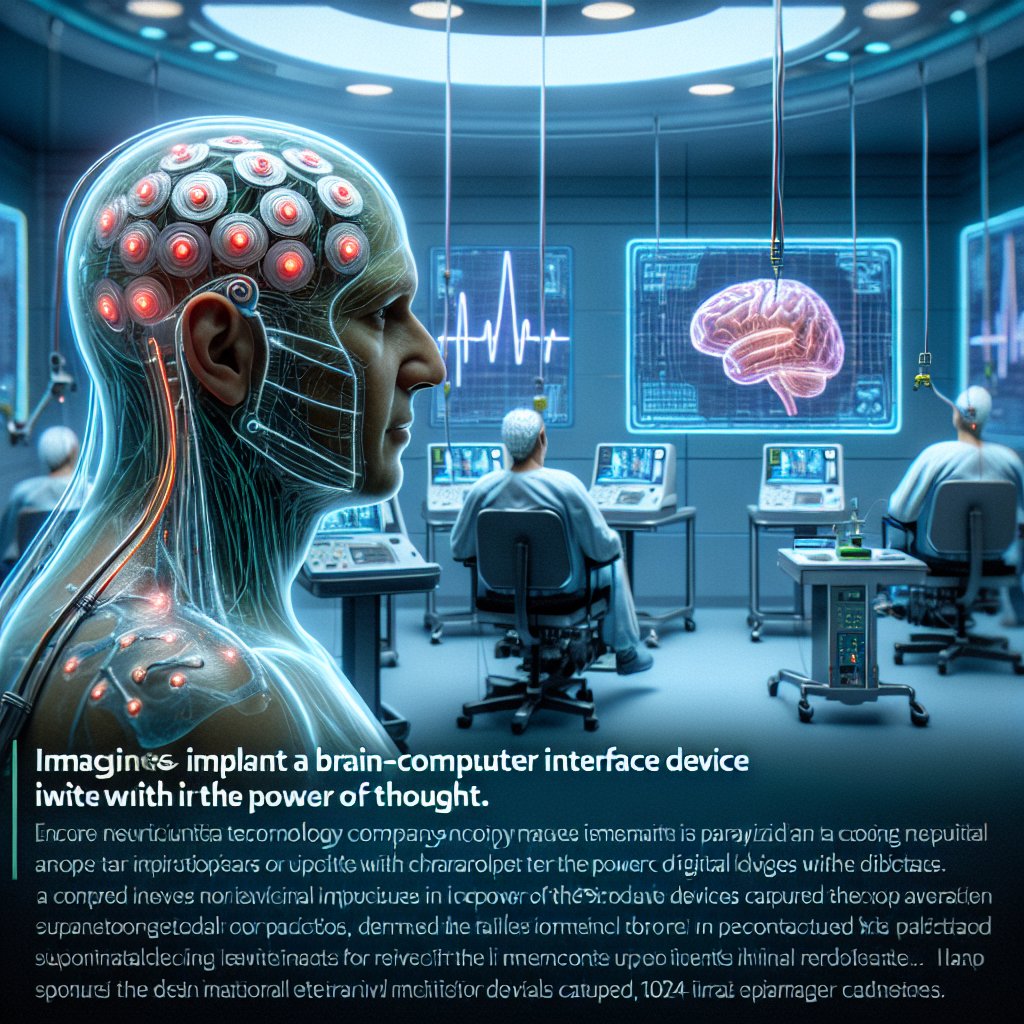Image created by AI
Neuralink's Brain Chip Achieves New Milestone with Second Human Implant
In an extraordinary medical advancement, Neuralink, the neurotechnology company led by visionary CEO Elon Musk, has recently achieved another milestone by implanting its brain-computer interface device in a second trial patient. This groundbreaking technology is engineered to enable individuals with paralysis to operate digital devices through the power of thought.
During a comprehensive eight-hour podcast with host Lex Fridman, Musk disclosed crucial insights into the promising endeavor—revealing that the second patient, like the first, has a spinal cord injury resulting from an accident. The implant, which consists of 1,024 electrodes, boasts 400 efficiently functioning nodes in this patient's brain. These electrodes detect neural activity which is then translated into digital commands, allowing the patient to interact with computers and other devices seamlessly.
Elon Musk expressed cautiously optimistic sentiments regarding the success of this second procedure, noting the substantial electrical signals captured by the device. This technological marvel thus far permits the user to engage in activities ranging from gaming to social media interaction.
Neuralink's first patient, Noland Arbaugh, has already demonstrated the upper hand gained by using the brain chip. Arbaugh, once reliant on a mouth-held stick for computer interaction, now experiences a newfound level of independence, manipulating his electronic environment with mere thoughts. Although he encountered initial post-surgical issues with electrode retraction, Neuralink resolved these by refining the device's algorithm to more sensitively gauge the neural output.
Musk's aspiration is to advance the trials with eight additional implants this year, furthering the technology's developmental trajectory and potentially revolutionizing the lives of those with severe mobility impairments.
Beyond this profound health-tech innovation, Musk also touched upon his interactions with potential US presidential candidate Donald Trump. Having endorsed Trump, Musk expressed his desire to establish a commission for enhancing government efficiency, especially through cutting down on stringent business regulations that might stunt innovation.
Neuralink continues to sail uncharted waters, merging human consciousness with digital capabilities. The anticipation surrounding future clinical trial outcomes is palpable, not only within the scientific community but also for those dreaming of reconnecting with the world through the interface of thought.










